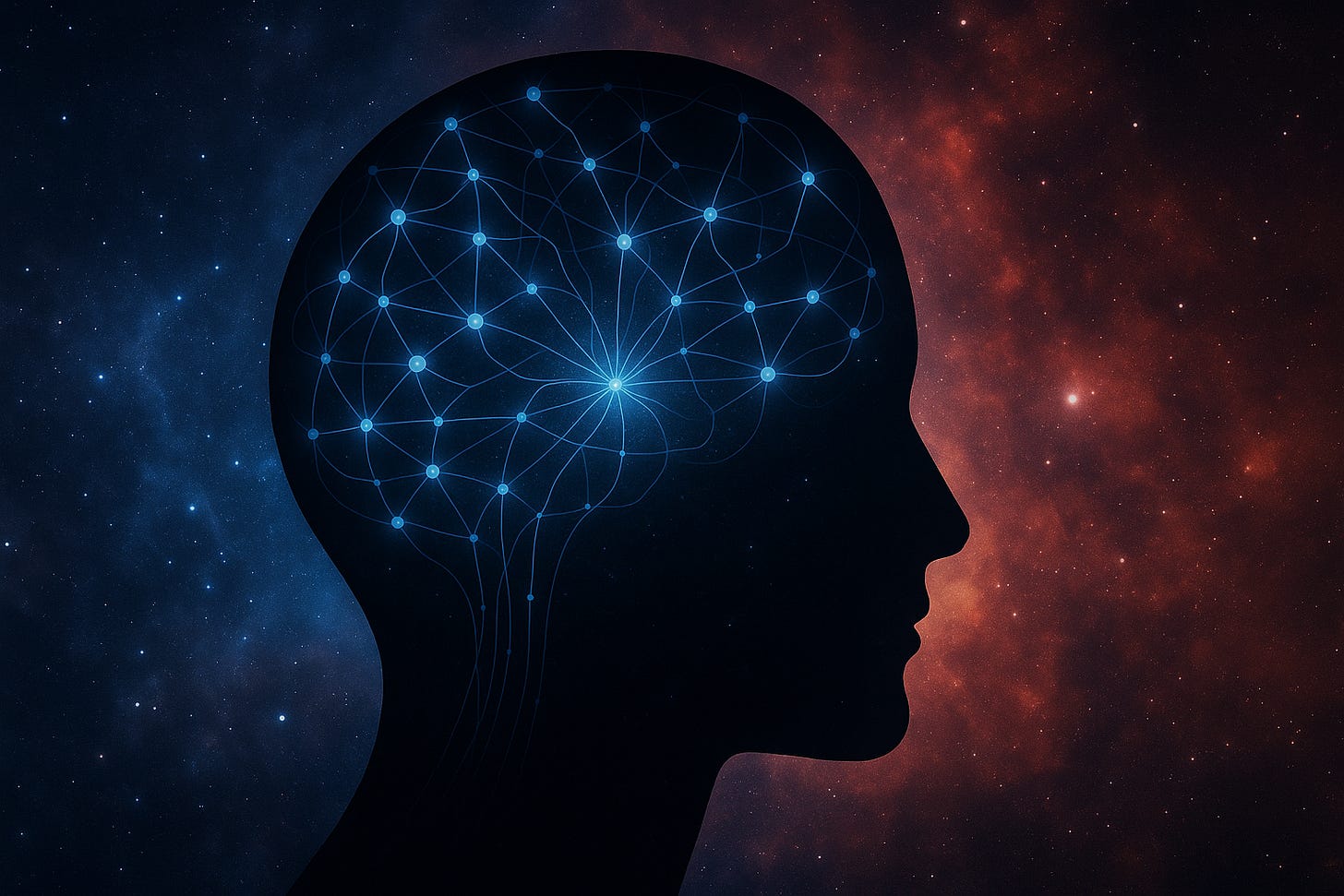The Unnatural Animal: Why Human Intelligence Defies Naturalism
Naturalists like to say that human intelligence is just the next step in a long evolutionary chain, a clever arrangement of neurons tuned by time and chance. We’re told that our minds are little more than complex learning algorithms, response-driven, pattern-hungry machines designed for survival, not truth. But if that’s all we are, a troubling question remains: why does our unique portfolio of capacities exist in no other creature on Earth?
Think about what makes us human. We reason abstractly, we build mathematical systems that describe the universe, we seek moral meaning, we imagine eternity. No other species debates its origins or writes symphonies about them. Evolutionary theory can describe how cognitive complexity scales, but not why it crosses the line into self-transcendence, into logic, language, and love.
Naturalism insists that everything about us can be explained from below, yet our very nature points upward. If consciousness is just chemistry, why does it perceive objective mathematical truth? If morality is just social instinct, why does it demand justice even when it costs survival? If intelligence is a by-product of adaptation, why does it reach beyond the material world to seek the meaning of existence itself?
The gap between humans and every other species isn’t one of degree; it’s one of kind. Chimps can learn signs, but they don’t discuss metaphysics. Dolphins communicate, but they don’t ponder truth. Artificial intelligences can imitate reasoning, but they don’t know why they reason. Something categorically different is at work in us, something that can’t be reduced to the blind mechanics of natural selection.
Every attempt to explain intelligence within a purely naturalistic framework ends up borrowing from the very thing it denies. Logic, mathematics, intentionality, and moral awareness are not physical processes; they are rational relations. And rational relations require a rational source. If logic and meaning are real, then mind precedes matter, not the other way around.
Under naturalism, the existence of reason is a miracle with no miracle-worker. Under theism, it’s exactly what we should expect. The human mind reflects the divine Mind, the image of the Logos stamped into dust. We don’t merely process information, we understand it. We don’t just react, we reason. That’s not an evolutionary accident. That’s design.
The irony is profound: humanity defines intelligence, searches for it in the cosmos, and tries to recreate it in machines, yet under naturalism, there’s no reason intelligence should exist at all. Theism alone grounds the phenomenon coherently. Rational beings exist because reality itself is rational, because, as John wrote, “In the beginning was the Word (Logos).”
That’s why human intelligence remains the most supernatural thing in the natural world.
SDG


